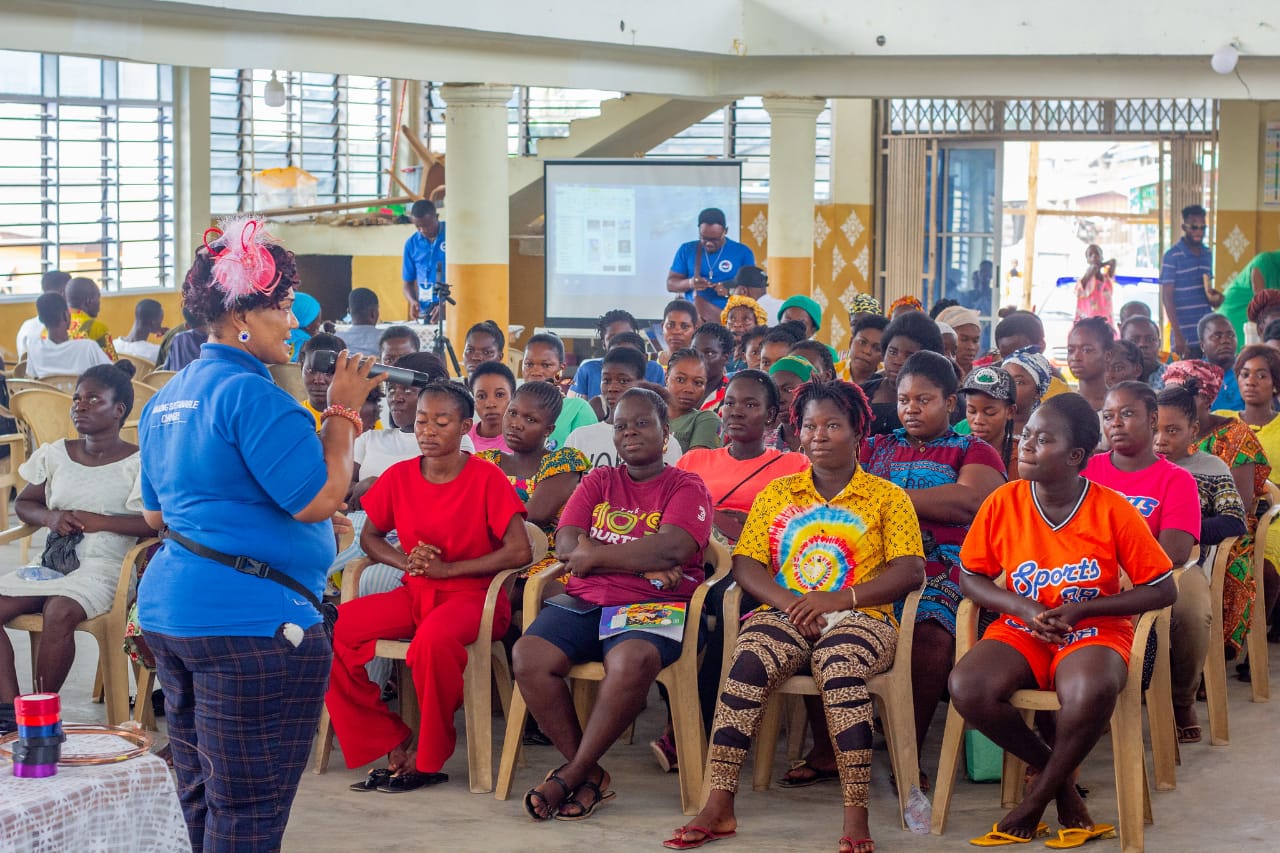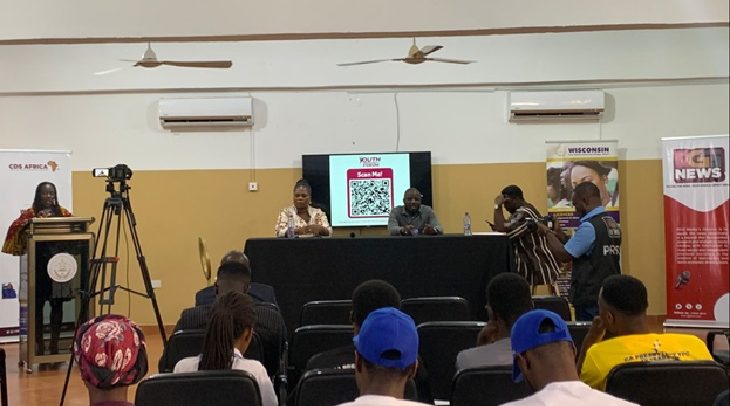
By Gordon ADOMDZA (Dr)
The sub-Saharan African region is set to power the next phase of global population growth. According to Foresight Africa (2020), 8 out of 10 fastest-growing countries will be in the region by 2030. This situation will intensify the demand for meaningful work, with more qualified graduates competing for limited job opportunities.
With graduate unemployment rates already estimated at 50percent in many countries and limited hiring in both the public and private sectors due to sluggish economies, colleges and universities face a crucial challenge. They must equip students to actively engage in job creation, self-employment, and business growth, recognizing the evolving demands of the job market.
To improve employability, institutions must move beyond job readiness training to job creation support and support graduates to start businesses right after graduation. In 2018, a Harvard Business Review report suggested that the median age of a successful startup founder was 45 years, and the founders who started out of school were successful at least 10 years later.

Typically, most graduates want to work for about 5 to 7 years before starting a venture, meaning the objective to train graduates to become entrepreneurs after graduation is only realized then. To solve the problem, we must develop and implement programmes that shorten the graduation-to-entrepreneurship startup window for young graduates. Much of this work would have to be done with alums, a group often rarely engaged by most institutions.
What could such efforts look like? What content and programmes would prepare students during their education, and what would motivate them to take on entrepreneurship as a career alternative? What support systems would help them start and sustain businesses sooner to achieve the overarching goal of creating economic value and growth as Africa confronts the impending youth bulge?
Insight and lessons from our efforts and experiences at Ashesi University
At Ashesi, our mission is to educate ethical entrepreneurial leaders with concern for others and the courage it would take to transform the continent. While the mission prioritizes the entrepreneurial mindset, the responsibility is to practically apply this mindset to enable graduates to become successful entrepreneurs upon graduation.
In their first year, Ashesi instils an entrepreneurial mindset in students through a mandatory entrepreneurship course. Students spend half the year working in teams on design thinking and problem-solving through design sprints. The other half is devoted to business simulations using the lean venture startup approach, teaching students to test their assumptions. This emphasis on rapid assumption testing helps identify and develop successful ideas while discarding less promising ones.
By the end of their first year, students know how to scope out a problem area, develop a systems perspective of the problem, conduct ethnographic research, conduct sense-making, develop a point of view of requirements, ideate, prototype and pilot where they could, all the while working with other people, learning and experiencing team dynamics and how to succeed as a team. As they progress, students engage in courses that enhance their operational, marketing, and financial capabilities to develop their ideas further.
Outside the classroom, they can pursue their concepts through our Design Lab or a Startup Launchpad, where they get guidance on developing their experiments, testing, hiring diverse team members, being accountable through the milestones set and preparing to engage with outside mentors. In their final year, they can form interdisciplinary teams and enrol in a capstone course to pursue their business idea, conduct market research and run operational tests with a small amount of funding.
Upon graduation, students face several options. They can choose a familiar position, often with a company they have previously interned with. Alternatively, they can opt for a teaching assistantship position for national service, or a paid fellowship dedicated to developing their entrepreneurial venture for a year, which can also count towards their required national service.
The university’s Career Services department facilitates this transition, offering career fairs, internship placements, and pitching exercises. Some students are inclined towards corporate employment due to personal or family preferences.
However, the focus remains on equipping them with an entrepreneurial problem-solving mindset. The expectation is that they will bring this mindset to their chosen organizations, rising through the ranks and eventually transitioning into entrepreneurship. This approach aligns with the mission of ethical entrepreneurial leadership and embodies the courage to drive transformative change, whether through establishing new branches, spinning off units, or leading growth within their organizations.
Ashesi offers an alternative career path through the Ashesi Venture Incubator programme, initially piloted as NEXTi2i with support from USAID and MIT D-Lab in 2018. In this initiative, recent graduates and alums are given a 1-year incubation fellowship, allowing them to earn a stipend while working on their business ideas. To mimic a traditional job environment, they also receive support for renting co-working spaces near their homes, enabling them to work outside their homes. This programme aims to bridge the gap by providing essential resources and support for aspiring entrepreneurs.
The incubator programme was designed to address the lack of industry experience, reduce startup risks, alleviate parents’ concerns, and enable entrepreneurs to focus on their businesses while receiving a stipend for essentials. They were paired with mentors, had access to a psychologist, and received technical support such as simulations with resource partners like banks, investors and help with strategic planning. These resources allowed entrepreneurs to continuously test assumptions, gain insights, and benefit from experienced mentors and advisors. This approach resulted in an 83percent post-incubation retention rate and approximately US$700,000 collectively raised by four cohorts over four years.
Throwing graduates into the job market may only deliver good results with a deliberate effort (e.g. internships and matching processes) to support those seeking regular employment to find jobs that fit their interests and career progression. Likewise, getting graduates interested in starting their businesses is not enough to guarantee success. There is a need to provide interventions that model their engagement with the market in ways that plug their capacity deficiencies.
The key insight here is that because of the 5-7 year experience factor, the interventions to get young people into entrepreneurship come down to alumni programming. Our venture incubator efforts were targeted at our alumni.
Many institutions struggle to engage their alumni, including university incubators and government agencies like National Entrepreneurship and Innovation Programme (NEIP). These organizations aim to promote entrepreneurship, but engaging alums who have gained 5 to 7 years of industry experience can be challenging. To facilitate the transition from regular employment to entrepreneurship, incubator programmes should target alums closer to the 5–7 year experience mark.
However, engaging these alumni poses challenges, as they often have stable incomes and responsibilities that cannot be easily put on hold. Practical support for alums in this stage may require unconventional measures like income replacement, family planning assistance, and counselling – elements not typically found in traditional incubators.
Side note
Entrepreneurship research shows that prior family exposure to business is one of the key determinants of people getting into entrepreneurship. While this may be the case in this part of the world, it appears entrepreneurial families would still want their children to get a regular industry degree (lawyer, engineer) before they choose entrepreneurship. This means that even if the student is screened in as coming from a family business background, the guarantee that they will start a business right after college is low and the guarantee would increase 5-7 years out after they have practiced in an area of industry.
>>>the writer is an Associate Professor, Business Administration at Ashesi University
References
- Foresight Africa: Top priorities for the continent 2020-2030. (2020). Brookings. Retrieved 31 October 2023, from https://www.brookings.edu/articles/foresight-africa-top-priorities-for-the-continent-in-2020/
- Tax incentive for young entrepreneurs-opportunities and challenges. (2022). BusinessGhana. Retrieved 31 October 2023, from https://www.businessghana.com/
- NEXT Idea to Impact—Ghana. (2018). Retrieved 2 November 2023, from https://d-lab.mit.edu/innovation-practice/inclusive-economies/next-idea-impact-ghana
The post Entrepreneuring the impending youth bulge appeared first on The Business & Financial Times.
Read Full Story


























Facebook
Twitter
Pinterest
Instagram
Google+
YouTube
LinkedIn
RSS